Ideas of empire 'embedded in everyday NI life'
- Published
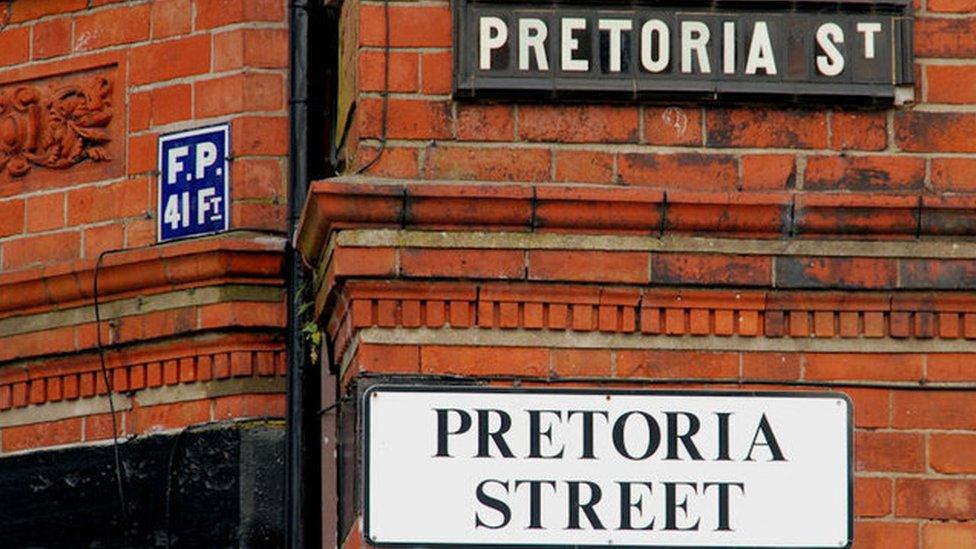
Many streets in Belfast are named after former parts of the British Empire
Ideas of empire and colonialism are "embedded within everyday life" in some of Northern Ireland's street names.
That is according to a paper presented at a public history conference at Queen's University Belfast (QUB) this weekend.
The Ireland, Museums, Empire, Colonialism conference looks at Ireland's relationship with the British empire and involvement in colonialism.
In a related development, the Ulster Museum has begun identifying artefacts looted from other countries or connected to the slave trade among its collections.
Some other museums are also examining potential links to the slave trade or whether they have items stolen, looted or removed by the British during the period of empire.
The National Trust has previously detailed how more than 90 of its properties have some connections to slavery and colonialism.
That included Mount Stewart in County Down, although the National Trust report also detailed how its former owner Viscount Castlereagh - who lived from 1769 to 1822 - supported the abolition of slavery.
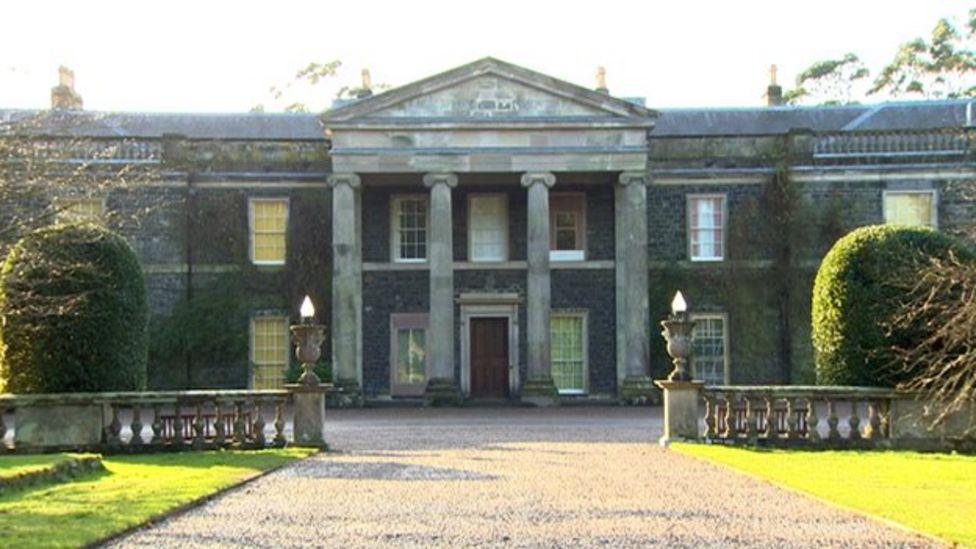
The National Trust has previously detailed how more than 90 of its properties - including Mount Stewart - have some connections to slavery and colonialism
One of the authors of the National Trust report, Prof Corinne Fowler, is a keynote speaker at the Ireland, Museums, Empire, Colonialism conference.
Another speaker is Prof Dominic Bryan from QUB as part of a panel on statues and public space.
Prof Bryan has identified the street names in Belfast with connections to the British Empire.
"If you run down an index of street names for Belfast they are hundreds of reminders of our past, dominated by the names of royalty, aristocracy and empire," he wrote in his paper, Empire on the Streets.
"The major institutions in the city include Queen's University Belfast and the Royal Victoria Hospital and the major bridges are named Queen's Bridge (1849), Albert Bridge (1890), Kings Bridge (1912) and Queen Elizabeth 2 Bridge (1966).
"Significantly, the more recent bridges have avoided such names: Lagan Railway Bridge (1976), Lagan Bridge (1995), Dargan Bridge (1995) and Lagan Footbridge (2015)."
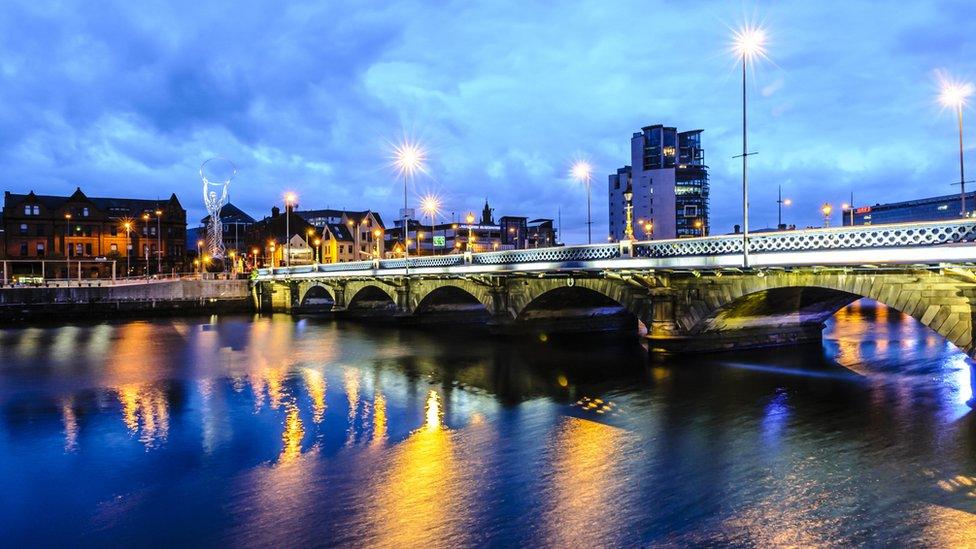
Queen's Bridge in Belfast was opened by Queen Victoria in the 19th Century
Prof Bryan's paper identifies numerous street names which commemorate imperial history and personalities.
These include Earl Haig Park in east Belfast and Baden Powell Street in the north of the city.
Battenberg Street in west Belfast is named after the Battenberg family, who later changed their name to Mountbatten.
Other streets, like Agincourt Avenue, Sevastopol Street or Trafalgar Street, are named after historic sieges or battles involving England or Britain.
Many other streets, like Madras Street, Delhi Street, India Street or Jamaica Street, reference the history of the British empire.
"There are of course many names that derive from a sense of place and direction and have roots in the Irish language," Prof Bryan wrote.
He said many streets in Dublin which were named in the 19th Century also recalled battles fought by the British Empire and members of the British Royal Family and aristocracy.
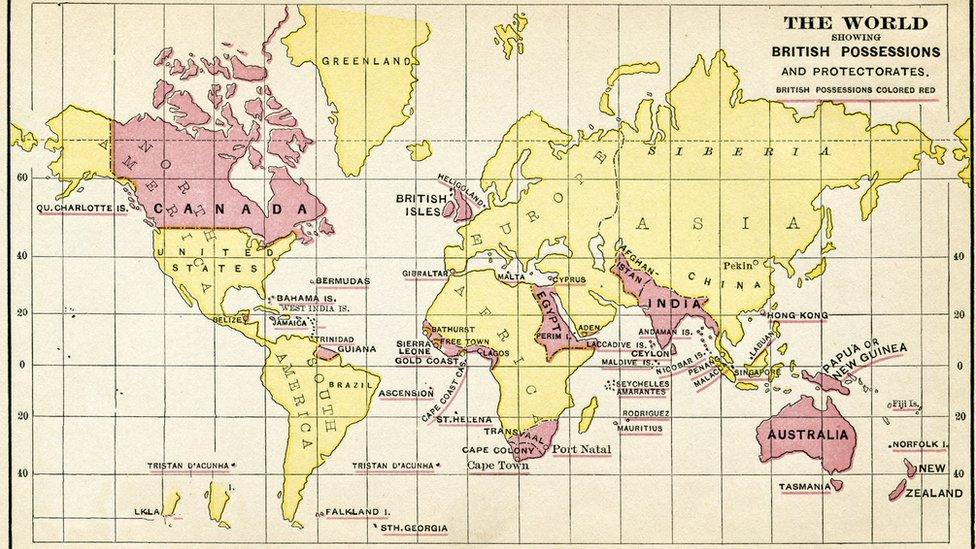
The British Empire was the largest in history
This has waned more recently in both cities, perhaps due to political changes, according to Prof Bryan.
"Much of the reasons that places are given names are quickly, maybe immediately, lost," he wrote.
"Or rather, maybe not lost but become part of the everyday and 'natural', only to be revealed and defended when they are named and opposed."
The Kop's colonial connections
His paper also looks at a number of sports grounds, including Linfield's Windsor Park and Liverpool's Anfield, which have a stand known as the Kop.
The origin of the name is the Battle of Spion Kop in the Boer War, but Prof Bryan said that the name was no longer an "effective memorial" as very few people now know the original reference.
"The Kop is a steeply sided bank of football fans in Liverpool," he said.
"The Kop is about singing and support and winning and togetherness and scarves and never walking alone."
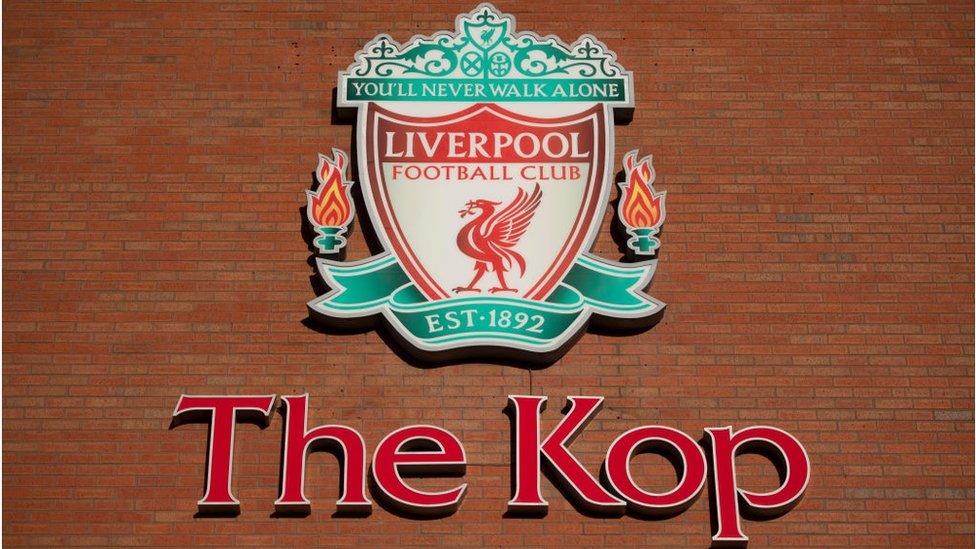
The Kop at Anfield, named after the Battle of Spion Kop in the Boer War
Dr Briony Widdis from QUB said the purpose of the conference was not to increase division over colonialism, but to hold conversations about it.
"I'm really conscious that even the word colonialism, when it's being spoken in public by politicians in recent years, that very word has raised difficult division," she told BBC news NI.
"There is a big conversation about how we all feel about empire symbols all around us on the streets and how do we react to those symbols depending on our own background.
"Each person will look at a statue of Queen Victoria in a different way with different emotions and memories about the colonial past in Ireland but also outside Ireland.
"I've been doing a lot of research recently interviewing people about what their everyday experiences of colonialism and empire are.
'Imperial symbols'
"You get the republican narratives about suffering injustice before and during and since the Troubles but you also got unionist or loyalist responses which are very pro-empire.
"But the fact is that we all live in the same landscape.
"All of us are seeing imperial symbols all the time and it's now we maybe have a greater awareness, we are seeing those things in a different light, especially since Black Lives Matter raised all these subjects."
The Ireland, Museums, Empire, Colonialism conference takes place at Queen's University Belfast on Friday 8 April and Saturday 9 April.